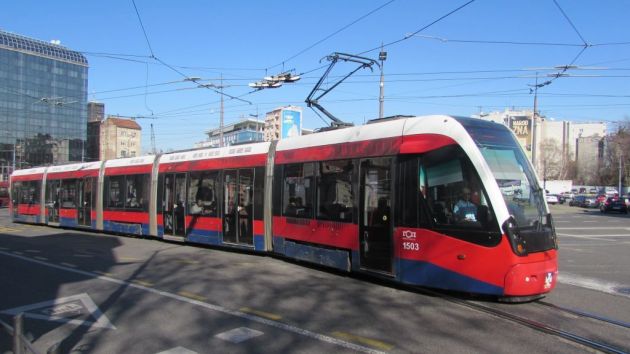European Commission forecasts continuation of economic expansion in Serbia
 Sunday, 22.07.2018.
Sunday, 22.07.2018.
 12:31
12:31

ŌĆō Economic expansion is expected to continue in the following years, mainly on the back of recovering private and public consumption ŌĆō says the report for the second quarter of 2018.
The European Commission's Directorate-General for Economic and Financial Affairs Economic forecast in its Institutional Paper on reform programs of the Western Balkans and Turkey in 2018 that the growth in Serbia is forecast to pick up markedly.
ŌĆō Although growing aggregate demand would drive prices up, inflation is forecast to stay close to the central bank target. Foreign direct investment is expected to remain large and to fully cover the current account deficit ŌĆō the report says.
The report says that, in the 4 years from 2014 to 2017, the general government budget moved from a very high deficit to a surplus, but the 2018 budget ŌĆ£could have been more ambitious in addressing some legacy issues from the crisisŌĆØ.
ŌĆō The medium-term budget deficit target of 0.5% of GDP is sufficient to ensure fiscal sustainability and further reduction of government debt, which is still relatively high at above 60% of GDP ŌĆō the report says.
When it comes to EU recommendations for the economic sector in Serbia, the Directorate-General assesses that maintaining a proper macroeconomic policy mix and continuing difficult structural reforms remain demanding.
The report says that government debt is still high and fiscal risks are elevated as key public sector reforms remain unfinished. Incomplete restructuring and privatization of state-owned enterprises still poses a risk.
ŌĆō The privatization and restructuring of state-owned enterprises continued to face delays, which are most critical in the energy sector ŌĆō the report says.
Serbia is also recommended to step up capital expenditure with a better system of planning and execution.
ŌĆō Serbia should develop a single mechanism for prioritizing and monitoring all investments regardless of the source of financing, as provided for in the public finance management (PFM) reform program ŌĆō the report says.
The report says that the business environment has improved but remains costly with unfair competition coming from the public and the informal sector. Own resources remain the principle funding for SMEs.
ŌĆō Trade integration with the EU is growing, but remains hindered by many non-tariff barriers, especially in the phytosanitary area ŌĆō the report says.
More substantive labor market reforms and increased investments in active labor market policies are needed, and the assessment is that ŌĆ£youth and women did not sufficiently benefit from the positive labor market trends in 2017ŌĆØ.
Education reforms need to be pursued, the paper says.
Based on the ERP forecasts, average annual GDP growth in the Western Balkans is to accelerate to 3.8% in 2018-2020 from the 2.5% recorded in 2015-2017.
According to the report, in Serbia, ŌĆ£the largest economy in the regionŌĆØ, the acceleration of private consumption is expected to be the strongest of the enlargement countries.
 EUROPEAN COMMISSION Bruxelles
EUROPEAN COMMISSION Bruxelles
Most Important News
06.04.2024. | Agriculture
Preconditions for Placement of Fresh Blueberries and Dried Plums in Chinese Market Secured

16.04.2024. | News
Jovan Ciric, Leasing Director Retail MPC Properties ŌĆō MPC Echo symbolizes our desire for good ideas and innovative endeavors to spread freely and bring about positive changes

16.04.2024. | News
10.04.2024. | Finance, IT, Telecommunications, Tourism, Sports, Culture
Creative Industry ŌĆō What This Serbian Economy Sector Worth EUR 2 Billion Encompasses

10.04.2024. | Finance, IT, Telecommunications, Tourism, Sports, Culture
18.04.2024. | Industry, Finance
Here come the new hunters for Serbian gold ŌĆō Australian Strickland Metals buys mining project on mountain Rogozna

18.04.2024. | Industry, Finance
16.04.2024. | News
Economy Fair in Mostar opens ŌĆō 26 companies from Serbia exhibiting

16.04.2024. | News
18.04.2024. | Transport
Jovanovic: Purchase of Siemens trams produced in Kragujevac for GSP Beograd should be considered

18.04.2024. | Transport


 Izdanje Srbija
Izdanje Srbija Serbische Ausgabe
Serbische Ausgabe Izdanje BiH
Izdanje BiH Izdanje Crna Gora
Izdanje Crna Gora


 News
News






